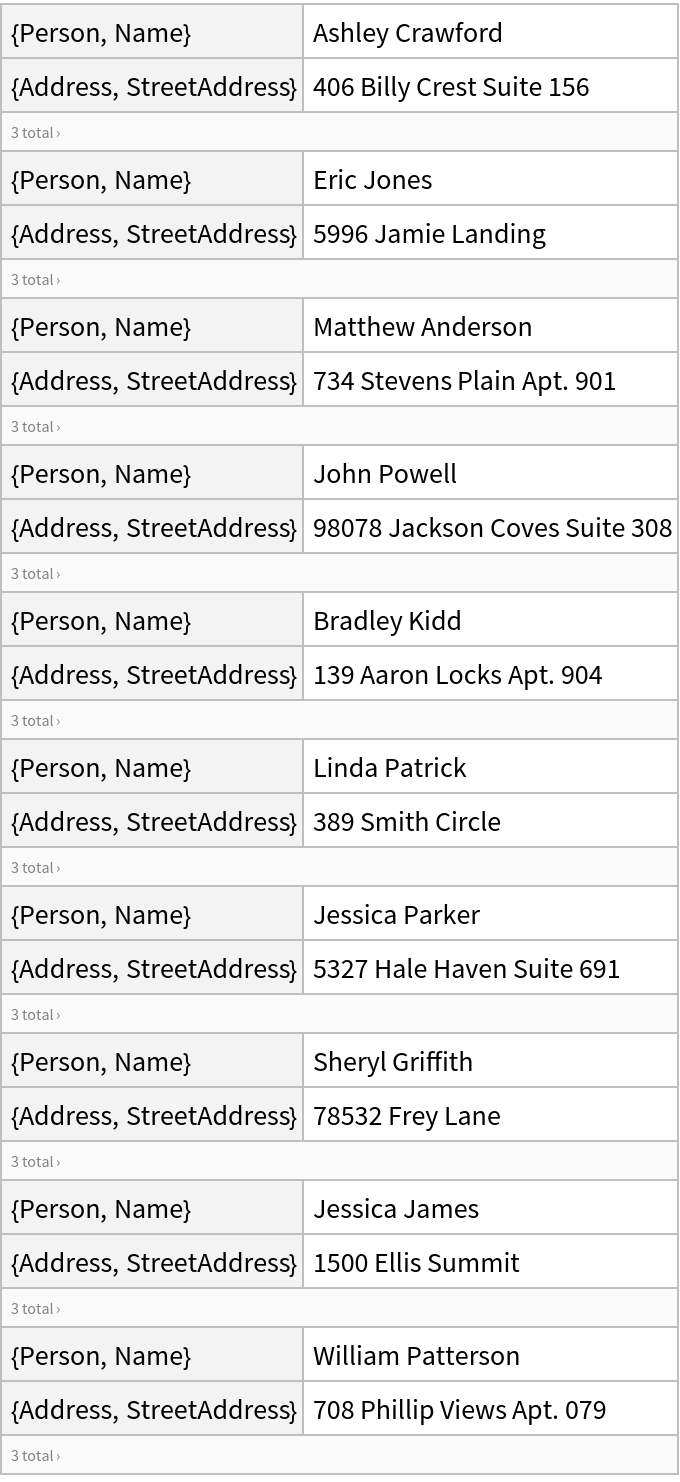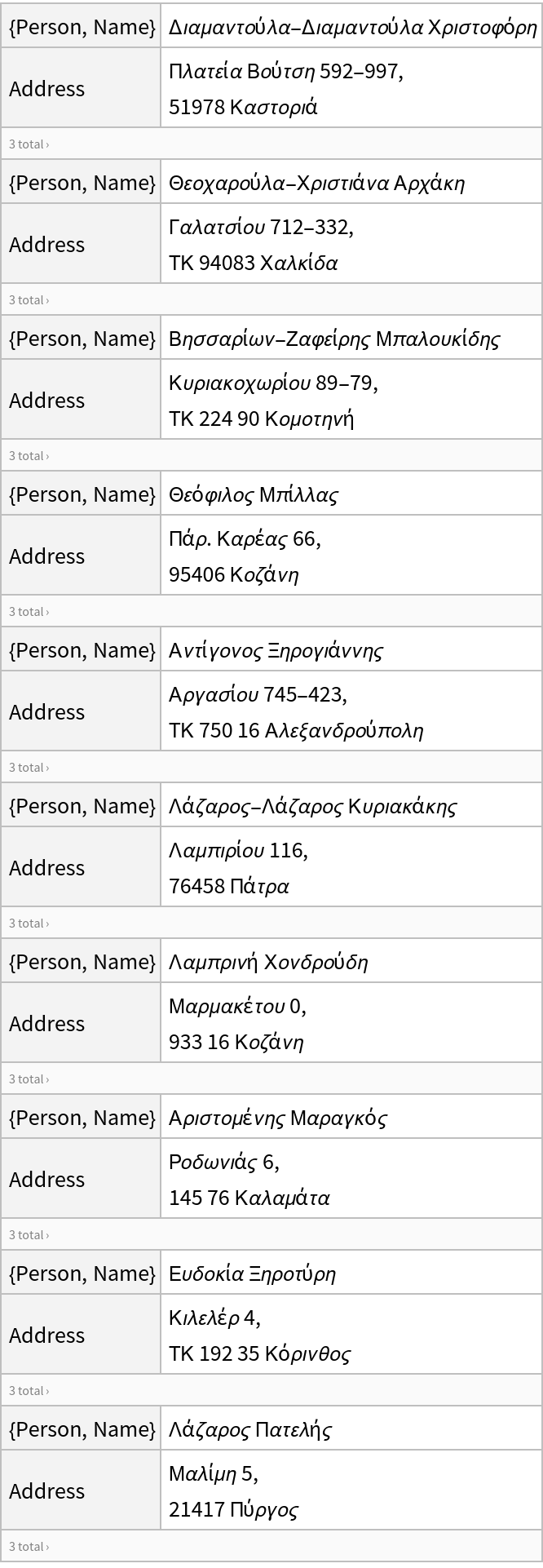Details and Options
ResourceFunction["RandomItem"] can be used to generate data validation test cases.
Supported basic item types include:
| "CreditCard" | credit card number |
| "Emoji" | emoji character |
| "PersonName" | person's name |
| "Address" | full address |
| "PhoneNumber" | phone number |
| "StreetAddress" | street address |
| "UserAgent" | browser's user agent string |
| "BankAccount" | basic bank account number (BBAN) |
Specific bank account items are specified with {"BankAccount",type} where type is any of:
| "ABA" | bank routing number |
| "BBAN" | basic bank account number |
| "IBAN" | international bank account number |
| "SWIFT" | international SWIFT code (8 or 11 digits) |
| "SWIFT11" | 11-digits SWIFT code |
| "SWIFT8" | 8-digit SWIFT code |
Specific user agent items are specified with {"UserAgent",type} where type is any of:
| "Chrome" | Chrome browser |
| "Firefox" | Firefox browser |
| "InternetExplorer" | Internet Explorer browser |
| "Opera" | Opera browser |
| "Safari" | Safari browser |
ResourceFunction["RandomItem"] calls functionality from the external
"faker" package (Python).
Certain item types, but not all, support a "Locale" option for localized results. The default locale setting is "en-US".
Locales are typically specified in the "language-COUNTRY" format, for example: "fr-BE" or "nl-BE".
Certain locales can be specified by their language name, for example: "Portuguese" or "Japanese".




![Map[ResourceFunction["RandomItem"][{"UserAgent", #}] &, {"Safari", "Chrome", "Opera", "Firefox", "InternetExplorer"}] // Column](https://www.wolframcloud.com/obj/resourcesystem/images/dfb/dfb14ea7-106f-4370-90a1-c5e0b4f0d980/1-0-0/75980730b70fcc09.png)















![Dataset[Table[
AssociationMap[ResourceFunction["RandomItem", ResourceVersion->"1.0.0"], {{"Person", "Name"}, {"Address", "StreetAddress"}, "BankAccount"}], 10]]](https://www.wolframcloud.com/obj/resourcesystem/images/dfb/dfb14ea7-106f-4370-90a1-c5e0b4f0d980/1-0-0/33f0a256b21bf500.png)

![Dataset[Table[
AssociationMap[
ResourceFunction["RandomItem"][#, "Locale" -> "greek"] &, {{"Person", "Name"}, "Address", "BankAccount"}], 10]]](https://www.wolframcloud.com/obj/resourcesystem/images/dfb/dfb14ea7-106f-4370-90a1-c5e0b4f0d980/1-0-0/399d3c3309194913.png)
